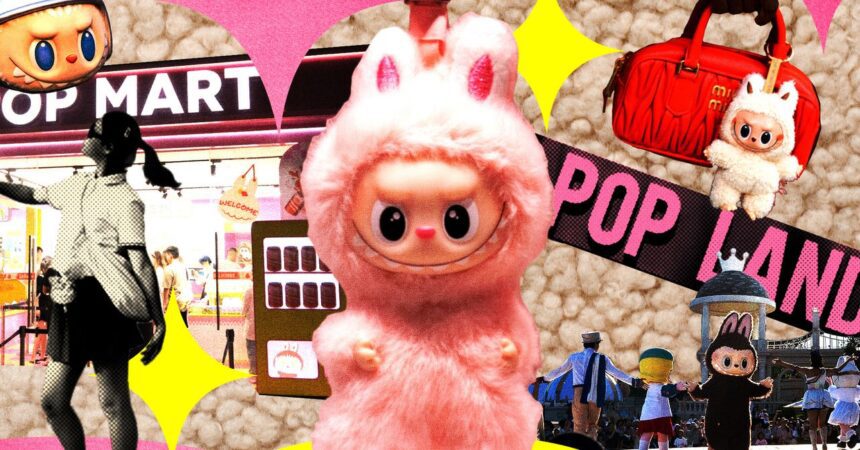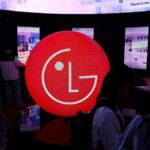I was unable to secure a Labubu from Pop Mart’s original store, so I opted to visit Pop Land, the company’s 10-acre theme park located in central Beijing. This venue represents a clear pivot in Pop Mart’s strategy, one that seems designed to challenge Disney’s dominance in the market. “Our art toys are like Disney’s movies,” Wang, a company representative, states in A Company One of a Kind. “They use movies to reach consumers, cultivate fans, and build IP and fan communities. We do it through art toys.”
Pop Land is approximately one percent the size of Universal Studios and Shanghai Disneyland, but its prime location near the consulate district and within easy reach of Beijing’s busiest business areas sets it apart. The park was constructed in a green space where Pop Mart was not permitted to remove any trees. Consequently, the company repurposed an abandoned building and renamed it Molly’s Castle. A nearby wooded area was transformed into Labubu Adventure Forest, enhanced with a more vibrant and child-friendly aesthetic than the original artwork by Lung. At one end, performers host a “Warriors Training Camp” in full Labubu costumes.
While dining at the park’s restaurant on the third floor of Molly’s Castle, I was surprised by my dining companion: a 23-inch-tall plush doll of Zimomo, the male chief of the Labubu clan from the original children’s book and one of the rarest Pop Mart products. Upon learning that I was dining alone, the waitress placed Zimomo in the chair across from me. Throughout my meal, fellow visitors frequently approached to ask if I had purchased the doll and if they could take a picture with it, making me feel as if I were dining with a celebrity.
At a neighboring table, a mother and her young daughter caught my attention. The mother explained that her daughter, who will turn 4 soon, had become enamored with Labubu after watching videos on Douyin, the Chinese equivalent of TikTok. Although she contemplated buying two Zimomo dolls for her daughter, which are frequently priced at $200 each on the resale market, she remained undecided. Just the day prior, she had seen on social media that a friend’s daughter celebrated a Labubu-themed birthday party, filled with dozens of rare Labubu figures. She shared videos of the party on her phone, noting, “Her mom paid a lot to get these.”
Since embarking on my own quest for Labubu figures, I have become aware of the resale market, where resellers, often referred to as huangniu (literally “yellow ox”), operate. One Pop Mart customer in Shanghai named Dong, a fan since 2018, informed me that many of these huangniu utilize automated bots to track social media for restock announcements, enabling them to purchase new merchandise the moment it becomes available. Dong has paid to join group chats that provide early information from huangniu. Identifying as a fenniu—straddling the line between fan and huangniu—he has amassed most of the Labubu products ever released and is now acquiring new items primarily to sell to other collectors for profit, which many might consider aligning him more closely with the huangniu category.










